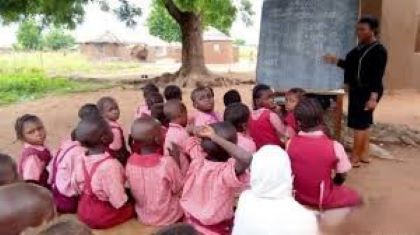As the Pact for the Future is launched at the 79th United Nations General Assembly in New York, the African Union (AU), Education Ministers, Development and Implementing partners have lamented that Africa budgets a miserable $260 (two hundred and sixty dollars) annually to educate a child, compared to the global average of $8,000.
The stakeholders were united in their call for urgent action to address the learning crisis in Africa, accelerate the scaling of proven interventions and deliver the enhanced continental productivity that will drive Africa’s growth and global returns.
Participants recognised:
- The unique opportunity that South Africa’s Presidency of the G20 in 2025 represents for Africa to lead the global response to the learning crisis.
- The value, essence, and importance of His Excellency, Mr. Hakainde Hichilema, leveraging his voice and influence to advocate for foundational learning, as the Champion for Foundational Learning in Africa.
- The scale of the impact that can be achieved if we enhance continental productivity and realise Africa’s demographic dividend by addressing the learning crisis, with up to $6.5 trillion of additional productive value achievable by 2030.
- Africa’s critical role as the epicenter of the learning crisis and the future growth engine of the global workforce, leading the development of solutions that will deliver global productivity.
- The commitment and leadership being demonstrated by members of the Africa Ministerial Coalition on Foundational Learning to test and scale proven interventions as a major pathway towards implementing their commitment to improve foundational literacy, numeracy, and socio-emotional learning.
- The innovative work being done by implementing partners across the continent to deliver better learning outcomes for those that need it most.
- The need for the more efficient use of existing resources (domestic financing and ODA) to deliver better learning outcomes, building on models that have worked in other markets, alongside an innovative approach to new financing mechanisms that can unlock additional investment.
The African Union acknowledged that Foundational Learning must be at the heart of the AU’s mission to drive social transformation and sustainable development in Africa.
The AU also acknowledged that Foundational Learning is an enabler for Africa’s long-term development and the key to unlocking the potential of millions of African children who will be the change-makers of tomorrow.
Stakeholders emphasised the continent’s commitment to foundational learning through the African Union-led End Learning Poverty Campaign to raise awareness and identify, scale up, and implement solutions.
They also acknowledged the current low levels of budget allocation to education with current average expenditure per child, per year of around $260 against a global average of $8,000 and the need to find innovative solutions that use existing resources better.
The gathering advocate commitment to ensuring that Foundational Learning remains a top priority on the African agenda beyond the Year of Education and to tracking progress going forward.
They called for an international effort to invest in Africa’s children and achieve the global returns that it will enable.
African Ministers identified the most urgent actions required to deliver change, calling for:
Innovative, evidence-based, and targeted financing alongside the better, more effective, and efficient use of existing resources.
Resources and support for teacher recruitment, training, coaching, and deployment are required to help children learn, using proven and efficient pedagogical approaches that work at scale.
A collective effort to generate more data and better utilise it to inform the pathway to better learning outcomes and enable accountability at all levels.
Together, participants acknowledged previous calls to action issued by Human Capital Africa and the Association for the Development of Education in Africa (ADEA) at the 2022 ADEA Triennale in Mauritius, the 2023 High-Level Policy Dialogue Forum on Foundational Learning in Lusaka, the February 2024 AU Summit, and former African Presidents at the AU Mid-Year Summit in Accra in July 2024. These calls urge Heads of Government, through the African Union, to take the following decisive steps to address the learning crisis.
They went on to make a formal declaration that it is unacceptable that nine out of 10 of our children in Sub-Saharan Africa and four out of five across Africa are unable to read with understanding and do basic math by age 10.
They acknowledge that the delivery of Agenda 2063 and its social, economic, and developmental objectives is deeply connected with learning outcomes, among others.


